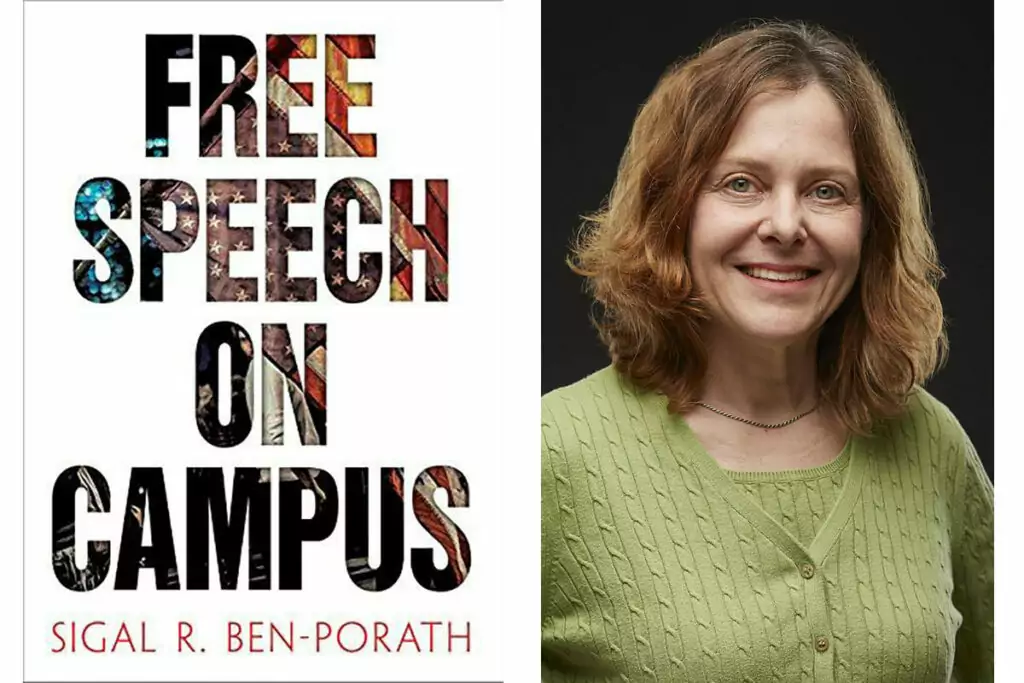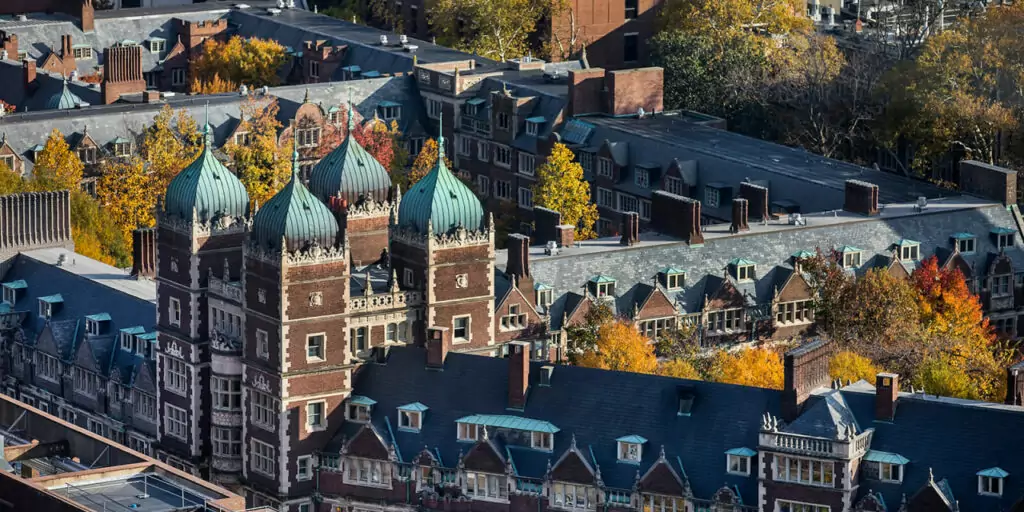Free speech on college campuses serves as a cornerstone for both learning and democracy. A recent study by the Foundation for Individual Rights and Expression (FIRE) reveals the best and worst colleges for upholding this principle. With societal values and educational effectiveness at stake, the report’s findings shed light on the urgent need for open dialogue in these academic communities.

✅ AI Essay Writer ✅ AI Detector ✅ Plagchecker ✅ Paraphraser
✅ Summarizer ✅ Citation Generator
Key Takeaways:
- Michigan Tech is the best for free speech; Harvard is the worst.
- Many students avoid speaking openly about controversial topics due to fear of backlash.
- A concerning number of students support using violence to stop speeches they disagree with.
Why Free Speech on College Campuses Matters
Free speech on college campuses isn’t just a nice idea. It’s crucial for learning and for democracy. Why? Because colleges are like little cities where future leaders, thinkers, and workers get their training. This is where people learn to think for themselves and where big ideas are born. So, everyone needs to be able to speak their mind openly. Sigal Ben-Porath, a professor who leads a group at the University of Pennsylvania focused on free speech, says that the right to express ourselves “is imperative for constructive learning and research.”

But free speech isn’t just about letting people say whatever they want. It’s about making sure that everyone gets to be part of the conversation, even if their views are unpopular or different.
“Students with diverging ideological leanings differ on how free freedom of speech actually is.”
Some students think it should be nearly unlimited, while others think there should be some boundaries, especially if speech harms or puts down others.
Why does this matter? Because learning happens best when people can challenge each other’s ideas. If you only ever hear people who agree with you, you’ll never grow. But it’s not just about personal growth. Ben-Porath makes another good point:
“What they are expressing is not oversensitivity. They are expressing a commitment to the values that we are teaching them.”
In other words, when students push back against certain kinds of speech, it’s not because they’re “too sensitive,” but because they care deeply about values like fairness and respect.
Some critics say that colleges are becoming places where only certain views are welcome. They point to examples where speakers have been shut down by protests. But Ben-Porath says that’s the wrong way to go about it. Shutting down speakers is not effective. Instead, she suggests other ways to disagree, like using humor or asking hard questions. She talks about how students at her campus protested a speaker they didn’t like by asking tough questions and holding signs.
“They engaged with the content and rejected it effectively.”
In a world where everyone has an opinion and can share it online, it’s even more important that students learn how to deal with different viewpoints. If colleges don’t allow free speech, they’re failing at preparing students for the real world. Even if you don’t care about free speech, as Ben-Porath puts it, “free speech is interested in you.” That means we can’t ignore this issue; it impacts all of us.
So, let’s make sure our colleges are places where free speech is protected and valued. Because at the end of the day, it’s not just about saying what you want to say, but about learning to listen, even when it’s hard. As Ben-Porath says,
“I would like to support my students in engaging with that.”
And that’s something we should all want.
Best and Worst Colleges for Free Speech
Every year, the Foundation for Individual Rights and Expression (FIRE) does a big study to find out how good colleges are at letting students speak freely. This year, they talked to more than 55,000 students from 254 colleges. So, what did they find out?
Michigan Technological University is the best place for free speech. Auburn University, the University of New Hampshire, Oregon State University, and Florida State University also got top marks.
Best Universities for Free Speech (2024 Rankings)
| Rank | University Name | Speech Climate Rating |
| 1 | Michigan Technological University | Excellent |
| 2 | Auburn University | Excellent |
| 3 | University of New Hampshire | Excellent |
| 4 | Oregon State University | Excellent |
| 5 | Florida State University | Excellent |

But not all colleges are doing well. Harvard got the worst score, and the University of Pennsylvania, the University of South Carolina, Georgetown University, and Fordham University were also near the bottom. What makes these schools different? It comes down to how open they are to hearing different views. The best schools have high scores in “Tolerance Difference” and “Disruptive Conduct.” This means they let speakers from all sides talk and don’t let protests get violent or out of control.
Worst Universities for Free Speech (2024 Rankings)
| Rank | University Name | Speech Climate Rating |
| 248 | Harvard University | Abysmal |
| 247 | University of Pennsylvania | Poor |
| 246 | University of South Carolina | Poor |
| 245 | Georgetown University | Poor |
| 244 | Fordham University | Poor |
Sadly, schools at the bottom seem to have more issues. For example, attempts to kick speakers off campus succeed 81% of the time at these schools. Students there also lean towards allowing liberal speakers but not conservative ones. This isn’t good because college should be a place where you can hear from everyone, not just people you agree with.
Many students are also scared to talk openly. More than half worry that someone might get them wrong and ruin their reputation. Around 26% feel they have to keep quiet on hot topics in class, and 20% often hold back their real thoughts. This is a problem because if you can’t say what you think, how can you learn?

Topics like abortion, gun control, and racial inequality are super hard to talk about at many schools. And here’s something shocking: more students now think it’s okay to stop others from listening to a speech or even to use violence to stop a talk. That’s not good for free speech or for learning.
It’s also clear that many students don’t know where their school stands on free speech. About 21% say their college’s position is unclear, and 27% think their college wouldn’t stand up for a speaker’s right to talk if things got heated.
Follow us on Reddit for more insights and updates.





Comments (0)
Welcome to A*Help comments!
We’re all about debate and discussion at A*Help.
We value the diverse opinions of users, so you may find points of view that you don’t agree with. And that’s cool. However, there are certain things we’re not OK with: attempts to manipulate our data in any way, for example, or the posting of discriminative, offensive, hateful, or disparaging material.